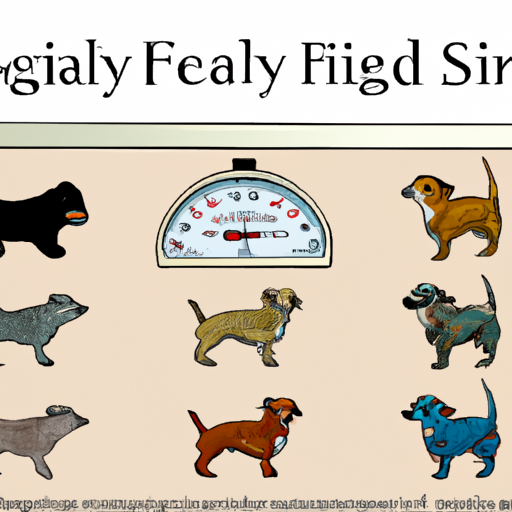Understanding The Varying Weights of Small Dog Breeds
You might have heard people referring to their petite pooches as “small dogs,” but what does that really mean? In the canine world, “small” can be surprisingly diverse. From the tiniest teacup pups to the more robust terriers, small dogs can range in weight quite significantly.
For instance, here’s a brief snapshot of how much some popular small breeds typically weigh:
| Breed | Weight Range |
|---|---|
| Chihuahua | 2-6 pounds |
| Pomeranian | 3-7 pounds |
| Shih Tzu | 9-16 pounds |
| Boston Terrier | 12-25 pounds |
| Miniature Schnauzer | 11-20 pounds |
Factors Influencing Your Small Dog’s Weight
In your role as a caregiver, you’ll notice that many factors influence the weight of your small dog. Just like humans, dogs are individuals, and their weights can vary depending on aspects such as:
- Genetics: Your dog’s breed and genetic makeup play a significant role in determining their size and weight.
- Diet and Nutrition: The quality and quantity of food impact your pup’s weight.
- Exercise: Physical activity levels can affect your dog’s weight. A more active dog might weigh less than a sedentary one, even if they’re of the same breed.
- Age: Dogs, like humans, can gain or lose weight as they age.
A Guide to Healthy Weight for Small Dogs
When it comes to your small dog’s health, it’s not just about the numbers on the scale. You, as a caregiver, should also focus on your dog’s body condition score. This is a more holistic measure of your pet’s overall health and fitness.
Here’s a simple body condition scoring system for dogs:
- Underweight (Score 1-3): Ribs, spine, and other bones are easily visible.
- Ideal weight (Score 4-5): You can feel the ribs, but they are not easily visible. The dog has a discernible waist when viewed from above.
- Overweight (Score 6-7): The dog’s waist is not visible, and belly fat is noticeable.
How to Maintain a Healthy Weight for Your Small Dog
Maintaining a healthy weight for your small dog isn’t always a walk in the park. However, with patience, consistency, and a few helpful tips, you can ensure your furry friend stays fit and healthy:
- Feed them a Balanced Diet: Make sure your dog’s diet is nutritionally balanced, portion-controlled, and appropriate for their size, age, and health status.
- Regular Exercise: Regular walks, playtime, and other forms of physical activity can help keep your dog’s weight in check.
- Regular Vet Checkups: Routine veterinary checkups can help detect weight-related issues early.
Frequently Asked Questions
Q1: What’s considered a small dog?
A1: Generally, dogs weighing under 22 pounds and standing no more than 16 inches tall at the shoulder are considered small.
Q2: How can I tell if my small dog is overweight?
A2: If you can’t feel your dog’s ribs or see their waist, they might be overweight. Consult your vet for an accurate assessment.
Q3: Can small dogs eat the same food as large dogs?
A3: Not always. Small dogs often need more calorie-dense food than large dogs because they have faster metabolisms.
Q4: How often should I weigh my small dog?
A4: Regular weight checks are beneficial. You might want to weigh your dog every month. If there are sudden changes, consult your vet.
Remember, as a caregiver, your goal is to provide the best care for your small dog. Understanding your dog’s weight is a significant aspect of ensuring their health and happiness.



